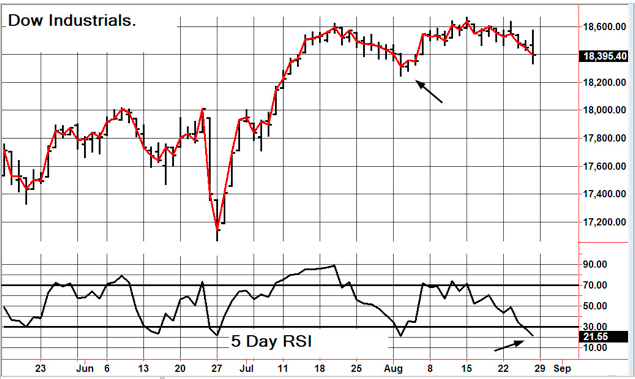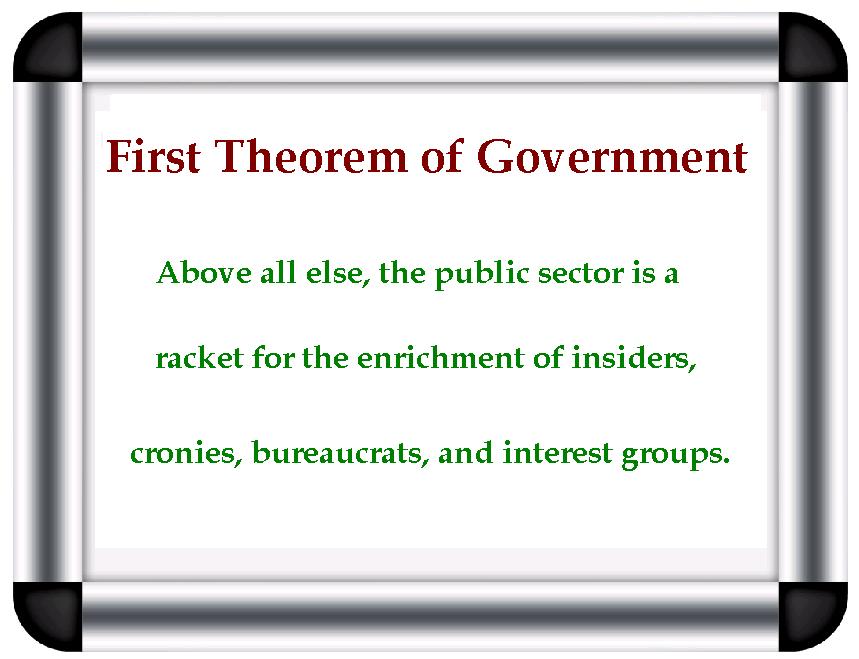Timing & trends
 Citizens of the developed world are watching Venezuela’s descent into financial and political chaos mostly, it seems, with amused detachment, safe in the assumption that we’ll never end up hunting our cats and dogs for food.
Citizens of the developed world are watching Venezuela’s descent into financial and political chaos mostly, it seems, with amused detachment, safe in the assumption that we’ll never end up hunting our cats and dogs for food.
But – since Europe, Japan and the US are making essentially the same mistakes as Venezuela’s past and present governments – we might want to question that certainty. Consider what’s happening in the third biggest US city:
Chicago’s detective force dwindles as murder rate soars
(Reuters) – Every two weeks, Cynthia Lewis contacts the detectives investigating the homicide of her brother on Chicago’s south side almost a year ago.
They have had no success finding who shot Tyjuan Lewis, a 43-year-old father of 15, near his home in the quiet Roseland neighborhood of single-family houses.
The death of Lewis, who delivered the U.S. mail for 20 years, is one of hundreds of slayings in 2015 that have gone unsolved as the number of homicides soared in Chicago, piling pressure on a shrinking detective force.
In a city with as many as 90 shootings a week, homicides this year are on track to hit their highest level since 1997.
Chicago’s murder clearance rate, a measurement of solved and closed cases, is one of the country’s lowest, another sign of problems besetting police in the third biggest city in the United States.
Detectives and policing experts interviewed this week said Chicago struggles to solve murders because of declining numbers of detectives, the high number of cases per detective and because witnesses mistrust the police and fear retaliation from gangs.
The number of detectives on the Chicago police force has dropped to 922 from 1,252 in 2008. One detective who retired two months ago said investigators are overwhelmed. “You get so many cases you could not do an honest investigation on three-quarters of them,” he said in an interview. “The guys … are trying to investigate one homicide and they are sent out the next day on a brand new homicide or a double.”
Why should a city as apparently affluent as Chicago have such a nightmarish crime situation? Because it’s not really that affluent. Like most of the rest of the formerly-rich world, Chicago ran out of money years ago and has been more-or-less secretly borrowing to cover the shortfall. Its public sector pensions, for instance, pay retired workers far more than the city can afford – but are legally uncuttable according to a recent court ruling. Here’s that story:
Pension ruling another blow to Chicago taxpayers — and Emanuel
(Chicago Tribune)- The Illinois Supreme Court ruled unconstitutional another pension reform law on Thursday, this one affecting Chicago and splashing more red ink on fragile, debt-ridden city finances.
The court’s decision to toss Chicago’s pension reform law, which the Illinois legislature approved in 2014 as an attempt to rescue pension funds for municipal workers and laborers, was not a surprise. Nor is its ripple effect: As the opinion states and unarguable math attests, those two funds remain on track to go insolvent “in about 10 and 13 years, respectively.”
The court previously had twice ruled that an Illinois Constitution pension clause protects retirement benefits promised from a worker’s start of public employment. The law the justices rejected had required certain city of Chicago workers to pay more toward their pensions, scaled back cost-of-living increases upon retirement, and raised the retirement age. The court ruled that those changes violate the constitution’s provision that membership in any pension or retirement system “shall be an enforceable contractual relationship, the benefits of which shall not be diminished or impaired.”
The decision repudiates Mayor Rahm Emanuel’s strategy for salvaging a vastly underfunded Chicago pension system that also covers public safety workers — police and fire — and Chicago teachers. Emanuel persistently has argued that because 28 of 31 unions affected by the 2014 reform law had agreed to it. Emanuel said that because the law would shore up the funds in the long run and thereby protect benefits for retirees, it would meet constitutional muster.
But the Supreme Court disagreed. In a 2015 ruling rejecting a pension reform law affecting state lawmakers, the justices faulted state lawmakers for not making adequate payments into their pension system. Thursday’s ruling similarly blamed city leaders for failing to make adequate payments into City Hall’s pension funds: “The pension code continued to set city contribution levels at a fixed multiple of employee contributions. This contribution level had no relationship to the obligations that the funds were accruing.” To rule in favor of the law would mean that the court would have to “ignore the plain language of the constitution.”
Translation: City and state politicians have known well that they were awarding pension benefits that Illinois governments cannot afford. Rather than properly fund pension systems, the politicians have spent on other priorities the tax revenues they should have set aside to fulfill all the generous retirement promises they made to their friends in public employees unions.
Now that this mess has become impossible to hide, new borrowing is getting harder and tax revenues aren’t sufficient to maintain previous levels of health, safety and livability. The result: a steady march down the affluence ladder towards a living standard that would be familiar to people in Brazil or India.
And it’s not just Chicago. Lots of other developed-world cities, states and countries are in similar predicaments, mostly because previous leaders over-promised on pensions that can’t be paid without skimping on everything else. See State pension fund gap approaching $1 trillion.
What does this mean? Over time – and not all that much time – life will get a lot harder for millions of people who are unprepared for it. Crime will metastasize, at-risk kids will go straight from school to prison, roads won’t be maintained, garbage won’t be picked up. It will, in short, become extremely unpleasant for the developed world’s former middle class. Then will come the civil unrest, and just like that your neighborhood looks like those Argentina videos.
The sad thing is that none of this is a surprise. As with so much else that’s going wrong, it traces directly back to the 1971 decision to hand the world’s governments an effectively unlimited monetary printing press. What has followed tracks perfectly with the view of human nature espoused by the Austrian school of economics, which is that we’re potentially brilliant but also corruptible. Since the ability to create money out of thin air is the ultimate temptation, of course nations, states and cities have all borrowed too much and made too many unsupportable promises.

And of course they can’t easily shed these obligations, because one of the laws of public life is that once created, a program gains beneficiaries who will defend it to their dying breath. So debt and unfunded liabilities keep expanding until the bill comes due. Then look out, cats and dogs.
related by Michael Campbell:
For Friday August 26, 2016 3:00 PST
DOW – 33 on 300 net advances
NASDAQ COMP – 5 on 150 net advances
SHORT TERM TREND Bullish
INTERMEDIATE TERM TREND Bullish
STOCKS: Today was all about the Fed. When Janet Yellen’s speech was made public, the Dow seemed somewhat satisfied and rallied to be up over 100 points.
Then Vice Chair Stanley Fischer decided he needed some publicity and came out with a more hawkish statement on interest rates and the fear of a quarter point rise in Fed Funds caused an immediate swoon.
GOLD: Gold was flat. In spite of a sharp rise in the dollar and higher rates. Actually, the yellow metal was much higher earlier in the day so it did drop somewhat.
CHART: This is the same chart as yesterday. The Dow is even more oversold (bottom arrow). It is also approaching the level that stopped the last decline (top arrow). It should move higher soon. If not, it is a sign of a more significant decline.

BOTTOM LINE: (Trading)
Our intermediate term system is on a buy.
System 7 We sold the SSO at 71.17 for a loss of 1.29. Very disappointing.
System 8 We are in cash. Stay there.
News and fundamentals: The second revision of Q2 GDP came in at 1.1%. Even worse than the first estimate. The trade deficit was $59.3 million, better than the expected $63.2 billion. Consumer sentiment was 89.8, lower than last month’s 90.4. On Monday we get the Dallas Fed mfg survey and personal income.
Interesting Stuff:
Ordinary riches can be stolen; real riches cannot. In your soul are infinitely precious things that cannot be taken from you. ————Oscar Wilde
TORONTO EXCHANGE: Toronto was up 9.
BONDS: Bonds were down sharply.
THE REST: The dollar was sharply higher. Silver was mildly higher. Crude oil was flat.
Bonds –Bearish as of July 14.
U.S. dollar -Bearish as of August 16
Euro — Bullish as of August 16.
Gold —-Bearish as of August 22.
Silver—- Bearish as of August 19.
Crude oil —- Bullish as of August 3.
Toronto Stock Exchange—- Bullish from January 22.
We are on a long term buy signal for the markets of the U.S., Canada, Britain, Germany and France.
related:
Larry Edelson on: Cycles Hitting Now!
 A fiery debate rages among investors over the question of central bank stimulus. The question is whether the stock market needs stimulus in order to advance, and is stimulus only creating a bubble which will burst at some point and lead to depression? Regardless of the philosophical rectitude of central bank intervention, there can be no denying its efficacy. The most fundamental truth of the financial market is that “liquidity, liquidity, liquidity” is the market’s lifeblood. Financial stimulus…..
A fiery debate rages among investors over the question of central bank stimulus. The question is whether the stock market needs stimulus in order to advance, and is stimulus only creating a bubble which will burst at some point and lead to depression? Regardless of the philosophical rectitude of central bank intervention, there can be no denying its efficacy. The most fundamental truth of the financial market is that “liquidity, liquidity, liquidity” is the market’s lifeblood. Financial stimulus…..
related:
 There’s a simple reason the homeownership rate is at a historic low – One of the most trumpeted economic statistics over the past few months has been the 51-year low in the homeownership rate.
There’s a simple reason the homeownership rate is at a historic low – One of the most trumpeted economic statistics over the past few months has been the 51-year low in the homeownership rate.
KC FED PRESIDENT: It’s time for gradual rate hikes— It is time for the Federal Reserve to raise US interest rates gradually, given progress on employment and inflation, Kansas City Fed PresidentEstherGeorgesaid in television interviews.
…continue reading HERE (scroll down for the list)
….also don’t miss Michael’s Daily Comment: Hmmm…. Will I Eat, Or Pay Taxes
That might well be the choice. The average family tax bill is up $4200.00 since 2010 according to the recent excellent Fraser Institute Study. Worse, government mismanagement/incompetence revealed in the report will drive them even higher.
Don’t miss Michael’s interview on the “red-hot” Vancouver Real Estate: If It Weren’t So Expensive It Would Be Funny














